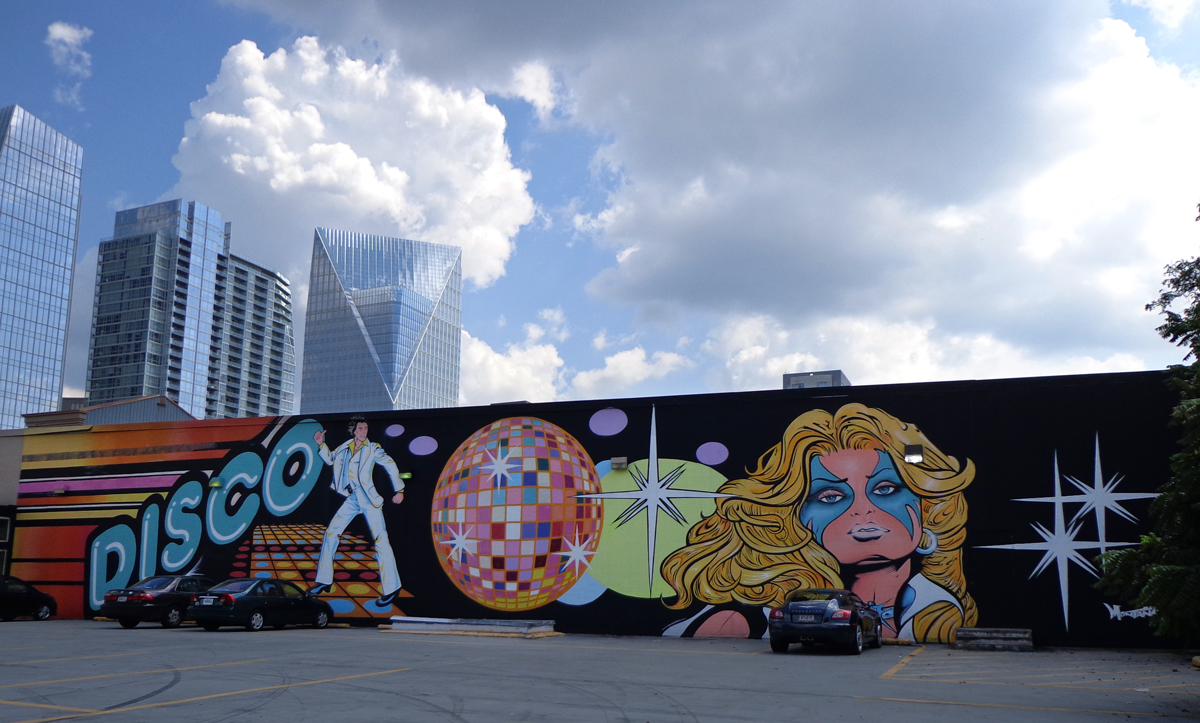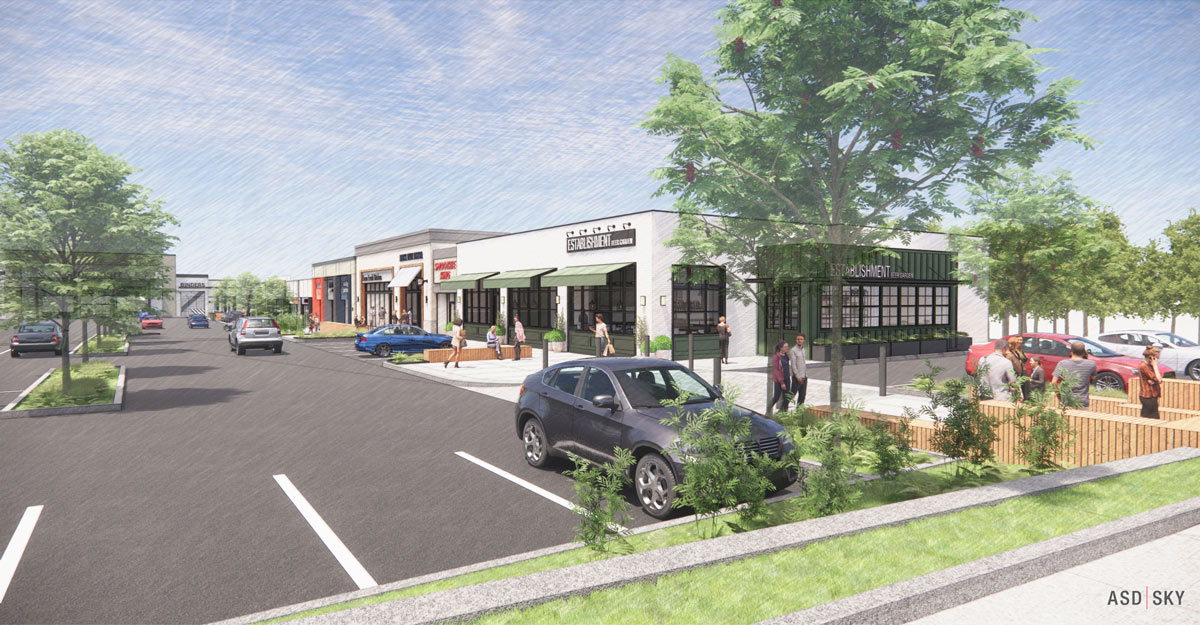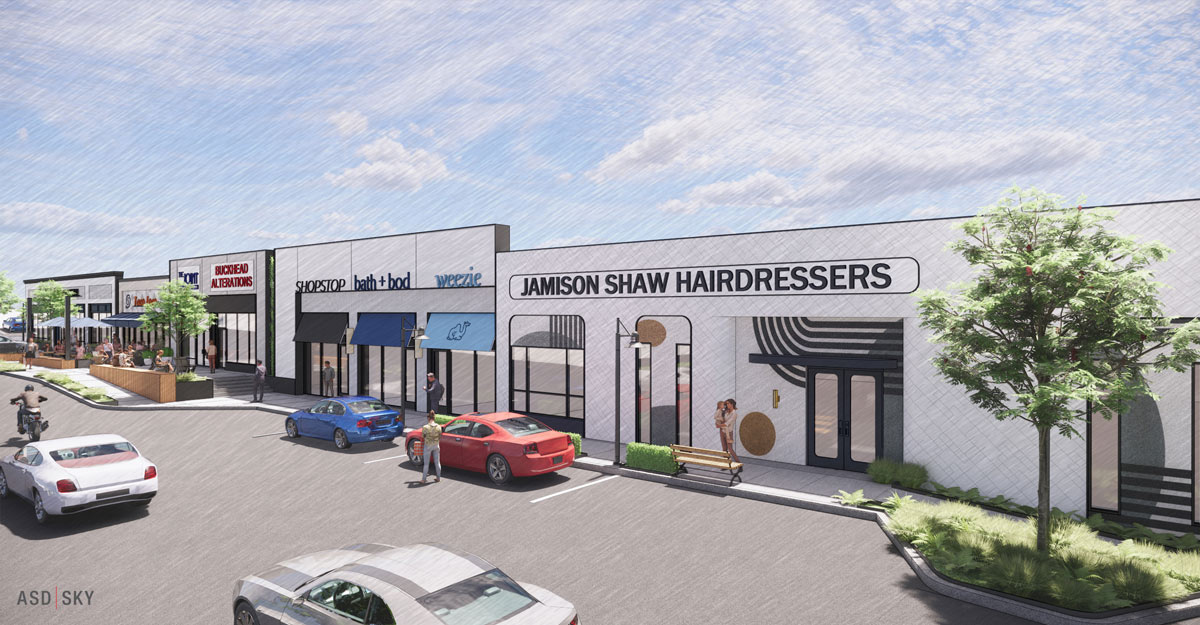
Photograph by Myrydd Wells
Had it been located nearly anywhere else in the world, it might have been just another grocery store—the kind where patrons didn’t wander in sweating, eyes blazing and decked out in bell bottoms and blindingly colored blouses. But this was Buckhead in the 1980s, and the 24-hour shop flanking the Limelight nightclub was all but destined to become “Disco Kroger,” a fine stop for fresh produce and deli meats and a vital refuge from the cocaine-fueled dance parties of decades past.
The Limelight shuttered in 1987, but the neighboring grocery store’s nickname—and its legacy—has survived long after the club’s demise. Now, though, the store itself is on the chopping block. It’s making way for a new supermarket, as part of an effort to reinvent the Piedmont Road shopping complex that the store has called home since 1976.
But if Atlanta’s knack for anointing its Krogers with enduring nicknames is any indication of the Piedmont Road property’s future, Disco Kroger will never truly die.
“Atlanta has the unique distinction of naming its Krogers for cultural destinations that span the decades,” says David Mitchell, executive director of the Atlanta Preservation Center, nodding to the likes of Disco Kroger, Gay Kroger, even Murder Kroger, among several others. “No one says, Gay Kroger? What do you mean? Everyone just nods and maybe giggles.”

Rendering by ASD | SKY

Rendering by ASD | SKY
Developer Regency Centers, which aims to revamp the strip mall the Kroger now anchors, hasn’t yet announced what grocer might replace the existing one—save for specifying that it won’t be a Kroger. But, even if a Whole Foods or a Publix or an Aldi makes the Buckhead site its home, Mitchell tells Atlanta magazine, “This will still be Disco Kroger.”
“No matter what you put there, it will always be a landmark,” Mitchell says. Just look at what happened when the so-called “Murder Kroger”—the Poncey-Highland location that earned its name from violent killings—was replaced with a bigger, more polished Kroger as part of a $200 million mixed-use development on Ponce de Leon Avenue. Kroger officially rechristened the store as “BeltLine Kroger.”
“Everyone still calls it ‘Murder Kroger,’” Mitchell says.
Maintaining Disco Kroger’s nickname is important to protecting the area’s cultural—and, perhaps, historic—fabric, according to Guy D’Alema, who used to be the house photographer at the Limelight discotheque. “As long as there are people who are still breathing who remember the Limelight and Disco Kroger, it will keep that memory alive,” he says in an interview.
The debauchery D’Alema witnessed is reason enough to preserve the legacy of the aging complex. “It was the Sodom and Gomorrah of nightclubs,” he says, “the place you’d go and hope your neighbors didn’t see you.”
D’Alema was shooting photos at the club when icons like Tina Turner, Grace Jones, and Andy Warhol made appearances. Of course, the nextdoor grocer, he says, had no choice but to embrace the role of trading post for the club’s staff and patrons.
Depending on the day, the Limelight would close at 3 or 4 in the morning. Its patrons, many of whom were ingesting “alternative substances”—“some would make them hungry; some would make them wound too tight”—would flock to Disco Kroger for sustenance.
“That Kroger probably sold more Nyquil than anything,” he says.
Lines snaked out the door every weekend; the Limelight was the place to be. So, what began as the sort of spectacle that well-to-do locals would avoid, D’Alema says, evolved into the kind of place that drew gawking audiences, including people who never intended to see the inside of the club.
As the club grew more popular, people would congregate outside in the Kroger parking lot, “just to get a flavor for what the club had to offer,” he says.
Long after the Limelight closed, though, the Kroger remained somewhere people felt comfortable being themselves. Where else would someone go when they needed to unload, say, a sizable drag collection?
When his first husband died in the early 1990s, Drew Plant, a writer and PR pro, came into such a stash: “Lots of spangly, sparkly dresses and tops and pants.”
Plant published a classified ad for the wardrobe in “one of the gay rags,” he says. After “a few crank calls,” a dominatrix inquired. “We made a plan to meet, and nowhere would do, she said, but the Disco Kroger.”
“A little weirdness will not bother anyone,” she told him.
“The whole scene felt very Atlanta, very Southern Gothic, and I know it would have tickled John,” Plant says of his late husband, reminiscing about the transaction. “None of this would have had the great edgy vibe it did had it not been for the role the Disco Kroger played.”
It’s still unclear when exactly the Kroger will meet the wrecking ball, but its replacement store is expected to begin ascending in late 2022. When construction crews chew up the site, though, they’ll preserve the iconic disco ball hanging in the store, as well as the vibrant disco mural painted on the side of an art supply store in the complex.
Says Mitchell: “No matter what you put there, it will always be a landmark.”
The post Though the physical store nears its demise, “Disco Kroger” will never truly die appeared first on Atlanta Magazine.